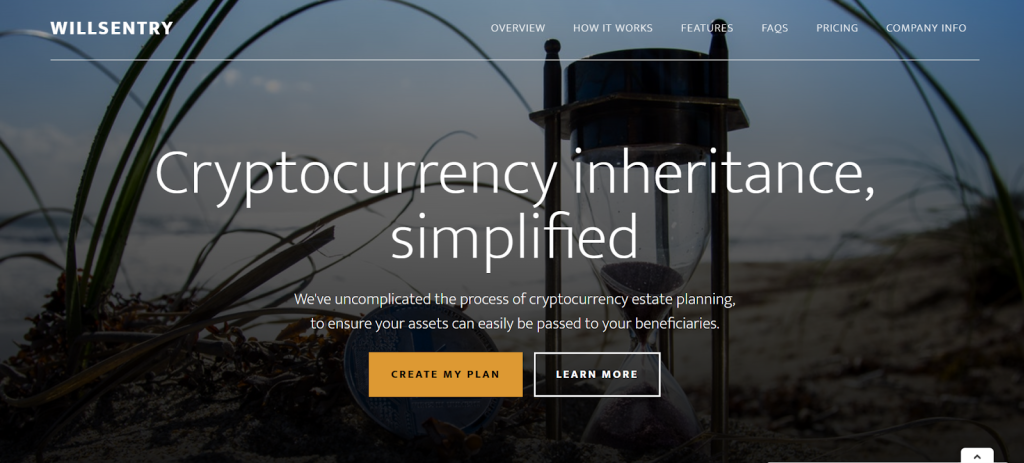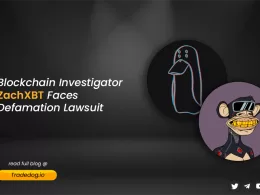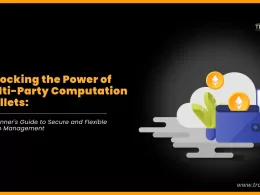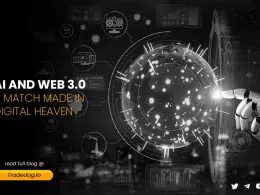Quick Links
An inheritance is a financial term describing the assets passed down to individuals after someone dies. Things may get tricky in inheritance, especially when digital assets are involved. Traditional inheritance is frequently centralized: a single person (usually a close family) is appointed as the executor of the estate, and they are in charge of dispersing the deceased’s assets according to their preferences.
Most inheritances consist of cash that’s parked in a bank account but may contain stocks, bonds, cars, jewellery, automobiles, art, antiques, real estate, and other tangible assets. What about Cryptocurrencies?
The problem with crypto inheritance is that most people are unaware of the need to plan for it. A survey found that only 8% of people who own crypto assets have made arrangements for what will happen to their holdings in the event of their death. Decentralized inheritance is an emerging concept in the world of blockchain and cryptocurrency that aims to disrupt the traditional ways of inheritance. In this blog post, we’ll take a closer look at what decentralized inheritance is, how it works, and what benefits it offers over traditional inheritance.
What is Decentralized Inheritance?
Decentralized inheritance is the process of transferring assets from one person to another using a blockchain network. In a decentralized inheritance system, there is no need for intermediaries like lawyers, banks, or other third parties to oversee the transfer of assets. Instead, the process is automated through smart contracts, which execute pre-programmed rules that govern the transfer of assets. In the next section, we will explore how inheritance work in centralized entities and decentralized entities.
How Does Decentralized Inheritance Work?
Before going into the decentralized way of inheritance, let’s try to understand how inheritance works in crypto with some examples. Existing solutions are available for both types of investors: those who do not trust digital inheritance methods to pass funds ahead and those who trust an automated protocol after the passing.

Willsentry assists Bitcoin investors with the process of cryptocurrency estate planning. They advise the client to include legal provisions in their wills to ensure that their possessions, as well as any credentials and gadgets, are accessible to beneficiaries for inheritance without releasing their secret keys. Meanwhile, Casa Covenant has developed a protocol that combines multi-signature technology into the existing estate planning and legal framework. The Coinbase exchange has also introduced a solution comparable to what banks generally do; they offer the option of transferring an investor’s account to heirs in the event of their death.
All these methods are centralized and taken by a single authority, whereas decentralized inheritance works by using a blockchain network to create a smart contract that governs the transfer of assets. This smart contract contains the rules that dictate how the assets are to be distributed after the owner’s death.
The smart contract is programmed to trigger when specific conditions are met, such as the death of the owner or the completion of a predetermined waiting period. Once triggered, the smart contract will automatically execute the rules and transfer the assets to the designated beneficiaries.
Examples of Decentralized Inheritance
Decentralized inheritance is still a relatively new concept, but there are already examples of its implementation. One such example is the EstateCoin , which uses blockchain technology to manage the transfer of assets from one generation to the next. EstateCoin allows individuals to create a decentralized smart contract that specifies the conditions of their inheritance. Once the conditions are met, the transfer of assets occurs automatically, without the need for intermediaries or legal processes.
Another example of decentralized inheritance is the Smart Contract Inheritance service offered by TrustVerse. This service allows individuals to create a smart contract that automates the transfer of their assets in the event of their death. The smart contract is linked to a digital wallet, which stores the assets until the conditions of the contract are met. Once the conditions are met, the assets are automatically transferred to the intended recipients.
Benefits of Decentralized Inheritance
Decentralized inheritance offers several benefits over traditional inheritance methods, including:
Eliminates the Need for Intermediaries
Decentralized inheritance eliminates the need for intermediaries like lawyers, banks, or other third parties to oversee the transfer of assets. This can save time, reduce costs, and eliminate potential conflicts of interest.
Increased Transparency
Decentralized inheritance is entirely transparent and can be audited by anyone on the blockchain network. This ensures that the transfer of assets is fair and equitable and reduces the potential for disputes among beneficiaries.
Enhanced Security
Decentralized inheritance uses blockchain technology, which provides enhanced security and reduces the risk of fraud or tampering. The assets are stored on the blockchain network, and the smart contract ensures that they are only transferred to the designated beneficiaries.
Faster Settlement Times
Decentralized inheritance can settle much faster than traditional inheritance methods. The smart contract executes the rules automatically, eliminating the need for lengthy legal proceedings or lengthy waiting periods.
Challenges of Decentralized Inheritance
While decentralized inheritance offers many benefits, it also presents some challenges. Some of the challenges include
Lack of Regulation
Decentralized inheritance is a relatively new concept, and there is a lack of regulation in this area. This can create uncertainty and may discourage some people from using decentralized inheritance methods.
Complexity
Decentralized inheritance can be complex, and not everyone is comfortable with using blockchain technology. This may create a barrier to adoption for some people.
Potential for Errors
While smart contracts are designed to be error-free, they can still contain bugs or coding errors that may lead to unintended consequences. This could potentially impact the transfer of assets and may cause disputes among beneficiaries.
Conclusion
In conclusion, decentralized inheritance is a concept that leverages blockchain technology to ensure a fair and secure transfer of digital assets to heirs. It offers several advantages over traditional inheritance systems, including reduced costs, increased transparency, and greater control over assets.
With the rise of decentralized finance and the increasing adoption of blockchain technology, decentralized inheritance is poised to become a popular and efficient way of passing on digital assets to future generations. As with any new technology, there are still challenges and limitations to be addressed, but the potential benefits are significant.
Whether you are a blockchain enthusiast or a digital asset holder, understanding decentralized inheritance and its implications is essential. By staying informed and exploring the possibilities, you can make the most of this exciting new development in the world of inheritance and wealth transfer.
In the end, the most important thing is to ensure that your assets are passed on according to your wishes and that your heirs are able to receive them without unnecessary delays or complications. Decentralized inheritance offers a promising solution to achieve this goal, and it will be exciting to see how this technology evolves in the coming years.









